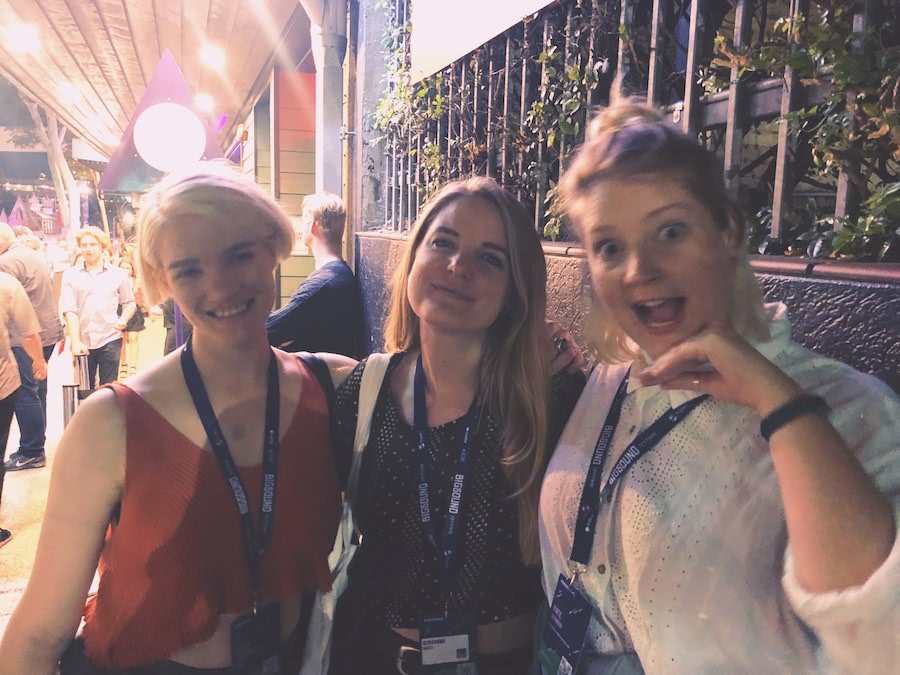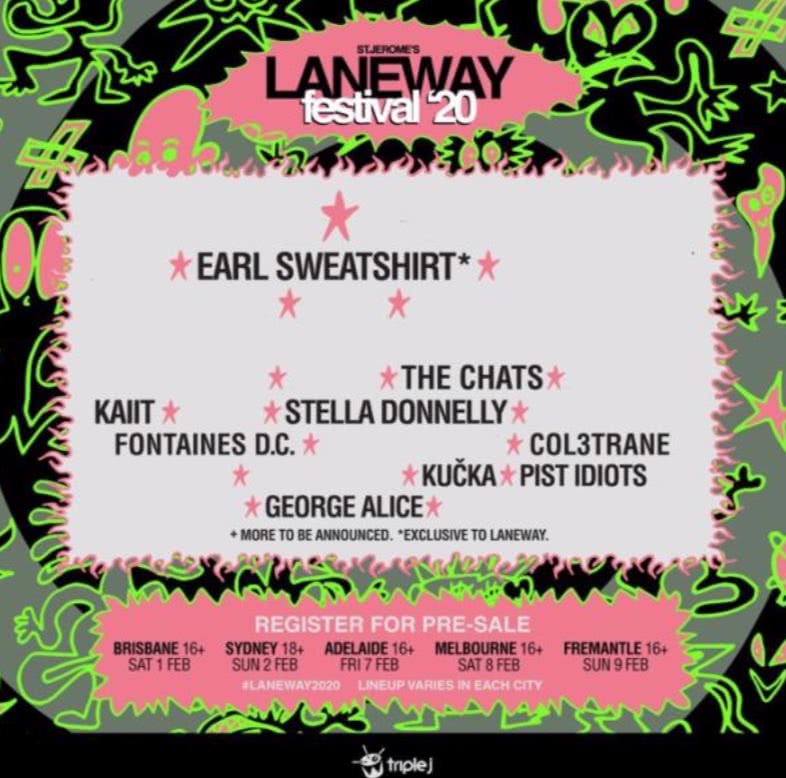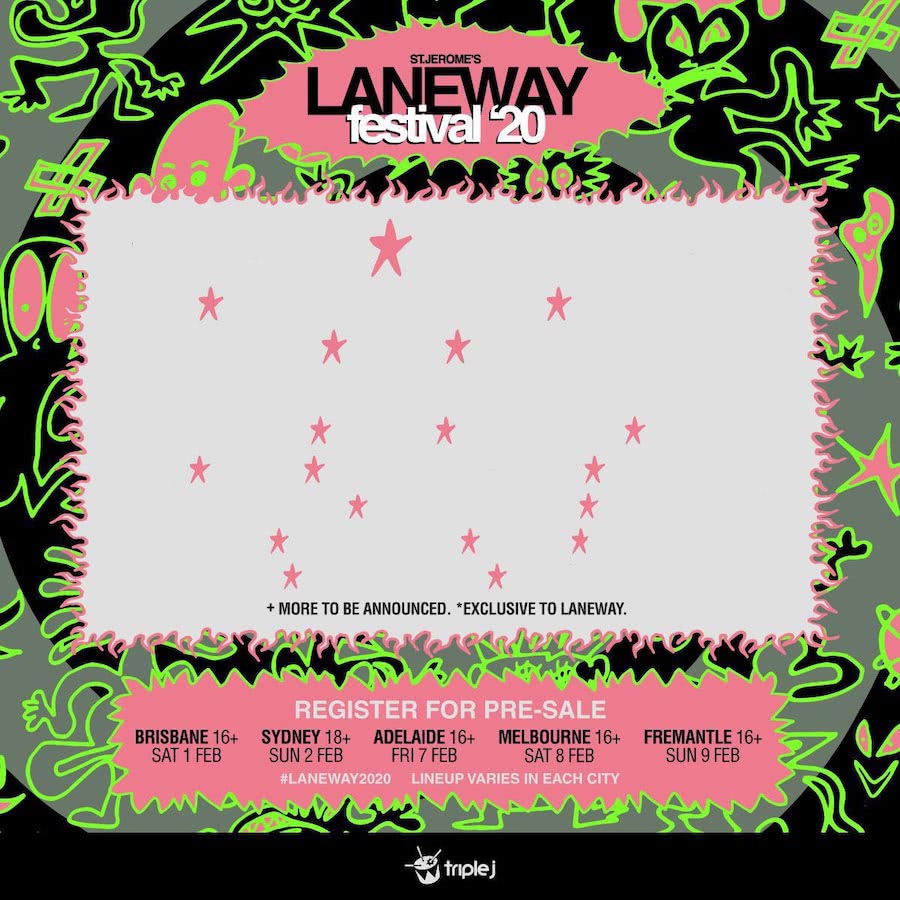Female Representation Behind The Scenes: An Op-Ed by Kelsie Miller

Back in 2016 I wrote an article on the lack of gender diversity in the music industry, triggered by the Triple J Hottest 100 results of that year and the fallout that swiftly followed. You can check out that article here.
The change that has happened around this topic over the past few years is nothing short of phenomenal. Yes, there’s still a way to go but I’ve seen firsthand the shift in mindset that has started among promoters, festival bookers, venues, musicians and industry representatives.
It’s almost unheard of now to see an all-male lineup at a show. Festivals and music conferences are actively working towards booking a more diverse selection of artists, and when they fall short people are very quick to call them out on it.
Female musicians are being highlighted and supported in a way they never have before, and while there’s unquestionably still work to be done I think it would be difficult to argue that people are unaware of the importance of diversity in the industry.
The change is real, and it’s happening. For musicians.
Recently I attended BIGSOUND, and had an experience that really surprised me both in its subtlety and also my reaction to it.
I attended a hookup: small groups of delegates who get one-on-one time with industry reps. I was in a group of three delegates – myself and two males. The industry reps we got to speak to were evenly split: two male, two female.
We were seated on couches in Cloudland, and as the first male rep approached our group he sat down on the couch opposite us – side on to me.
He started chatting to the two guys in the group, but didn’t acknowledge me for the first 5 minutes or so of the 15 minute meeting. I had to actively lean into the group and interrupt their conversation to even have a chance to introduce myself.
As the reps moved around the groups, the second male rep approached and sat facing all of us. He asked us what we did, starting with the first male delegate.
After the second rep got his chance to speak – before I could introduce myself – the first male delegate jumped back in with a question, and the conversation instantly shifted to the three men together. I was pretty pissed off by this stage, so interrupted again by saying, ‘I didn’t actually get a chance to introduce myself just now.’
Unsurprisingly, this didn’t happen with the female industry reps.
In both situations, I had to push myself out of my comfort zone to even be acknowledged within these spaces. It wasn’t until I got my chance to speak about the band I manage and show their stats and numbers that the male reps showed the slightest interest in me.
Ironically, of the three delegates in the group I had the most compelling reasons for attending this specific hookup, and once the reps started speaking to me I got valuable advice and insight from them – but I had to fight for it. A year ago, I wouldn’t have said a word.
Among all of the support that’s happening for female musicians at the moment, I feel like females working behind the scenes – managers, booking agents, etc. – are often being overlooked. I’ve lost count of the number of times I’ve been asked by someone backstage when I’m tour managing, ‘So who’s girlfriend are you?’.
Or the times in a green room where venue owners or promoters have walked in and introduced themselves to everyone in the room except me, because I’m the only female there.
Or those times like I’ve described at BIGSOUND where your confidence is undercut in the most subtle of ways, and you have to actively make a choice as to how you’ll deal with it.

Ellen Oosterbaan (WAM), Kelsie Miller, Kate Branson (Goodtime Marmalade Publicity) at BIGSOUND
I work with a band who have a female manager and a female booking agent (both of whom have female assistants), a female Australian publicist and a female New Zealand publicist. This is so incredibly rare in the music industry, yet the focus is only ever on the fact that they are an all-male band.
I believe wholeheartedly in the importance of giving female musicians a platform that they’ve been lacking throughout history, but as this change happens I think the next step is to look a bit further and appreciate the importance of who artists choose to work with behind the scenes.
I love the Instagram account @lineupswithoutmales, and it’s often the first place I look to when a new festival lineup is announced to check the gender balance. Their simple yet incredibly effective approach has seen a lot of festivals get called out for lack of diversity, and the impact they’re making is so important.
So I decided to use their approach in a slightly different way, to discover what’s happening in gender diversity behind the scenes.
Gender diversity behind the scenes
Here’s the Laneway 2020 lineup highlighting artists who have a female manager or a female booking agent*.
I chose Laneway simply because it’s been the most recent Australian festival announcement. Only 33% of artists in the first Laneway announcement work with either a female manager OR female booking agent.
It’s also important to note here that The Chats, Stella Donnelly and Pist Idiots all have the same female booking agent, so the actual percentage of individual females represented is 26%.
Imagine the backlash if that was the percentage of female artists on the lineup.

Source: @lineupswithoutmales
Here’s the Laneway 2020 lineup highlighting artists who have BOTH a female manager and female booking agent**…

This is absolutely not intended to say that female artists shouldn’t be added to lineups because they have a male team behind them, or that Laneway (or any other festival for that matter) have done the wrong thing in booking a diverse lineup of artists, regardless of their team.
This is simply intended to highlight the lack of female representation that exists behind the scenes, and to encourage people to start supporting young females who are trying to make their way as managers, booking agents, etc.
This is also not a criticism of male managers and booking agents in general
Many well-established male managers have been extremely generous with their time in mentoring me and giving me advice, often far more so than females in their same position.
I simply believe that the time has come to continue the diversity conversation in the music industry beyond musicians, and show as much encouragement to young female managers, booking agents and music industry workers as we’re (slowly) showing to female artists.
We’re usually the ones on the front line working for our artists at conferences like BIGSOUND, fighting to get a seat at the table and make our voice heard, and we need all the support we can get.
Let’s continue the conversation. _________________________________________________________________________________
Disclaimer: I acknowledge that there is also a lack of representation for people of colour and people within the queer/trans community in the music industry. I’ve chosen to limit this very complex argument to female representation as that is my lived experience.
*Based off the manager and/or booking agent listed on an artist’s Facebook page.
**Where none is listed or a generic email address supplied I’ve done by best to find the artists representation online – in some cases it wasn’t readily available so I’ve excluded them from this graphic.
- Where there are multiple global reps I’ve based it off Australian representation.
This article originally appeared on The Industry Observer, which is now part of The Music Network.






























